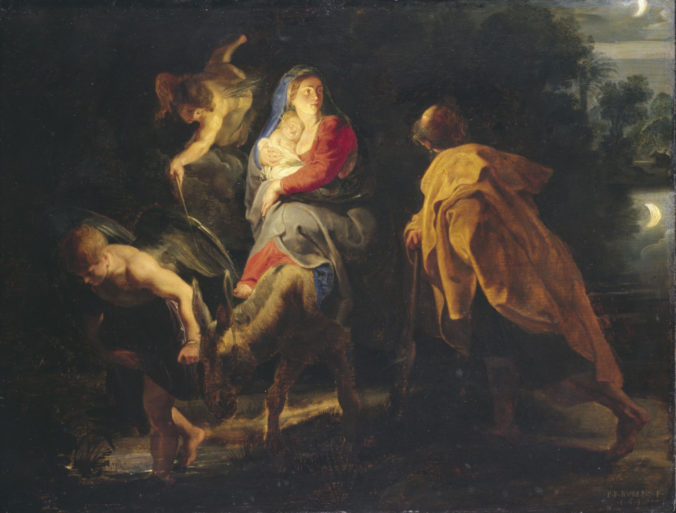In Matthew’s account of Christ’s birth, there is one verse whose implications may be easily glossed over. In the second chapter, we read of how the Lord warned Joseph to flee to Egypt, as Herod desired to kill Jesus, fearing his future kingly reign. Upon Herod’s death, they are then able to return where we read, “This was to fulfill what the Lord had spoken by the prophet, ‘Out of Egypt I called my son.'” (v. 15). This verse is originally cited from Hosea 11:1, which reads, “When Israel was a child, I loved him, and out of Egypt I called my Son.”
In Hosea, God tells of his love for his people Israel whom he called out of Egypt. Despite their rebellion, he longs to gather his people to himself. Although they will be judged through Assyrian rule, God promises that he will not destroy them and will return them to their land. Although this verse does make a prediction about the life of Jesus that is fulfilled, there is more here than simply a fulfilled prophecy about the life of Jesus.
When God’s son Israel was first called out of bondage, they grumbled against the Lord and an entire generation died before they were able to enter the Promised Land. Even once they took possession of it and their enemies were destroyed, they still continued to rebel and required the correction of judges and prophets and were judged through the invasion of the Babylonians and the Assyrians. Thus, although they were brought out of the physical bondage of Egypt, they had not been brought out of spiritual bondage.
This is evidenced by examining the life of Moses, the one who brought them out. Although Moses was a godly man who beheld God’s glory on Mount Sinai, he was also plagued by sin and was prevented by God from bringing the people into the land because of that sin. The failure of Moses to finally bring them into the land showed that what Israel truly needed was not merely a deliverer out of the bondage of physical Egypt, but a deliverer out of the bondage of spiritual Egypt – the bondage of sin.
When Matthew quotes this passage, he is showing his readers that the one that who will do this has finally come. Thus, “Matthew’s appeal to Hosea 11:1 is intended to show that Jesus’ departure from Egypt signals that Israel’s promised deliverance from Egypt has begun.”1 Israel’s deliverance from physical Egypt is merely a picture of the spiritual Egypt that they and all men needed deliverance from. Thus, Matthew shows that Jesus’ departure from Egypt proves that he is the true deliverer from Egypt, the one who would bring his people out of spiritual bondage and deliver in a way that Moses was incapable of accomplishing.
As you celebrate Christmas again this year, remember the one who went before us out of Egypt, so that we could be brought out of Egypt as well. Although we may wander in the wilderness of this world for a time as Israel did, “the new Moses will lead God’s people on a new exodus, a spiritual exodus”2, an exodus out of sin and into the final Promised Land.

